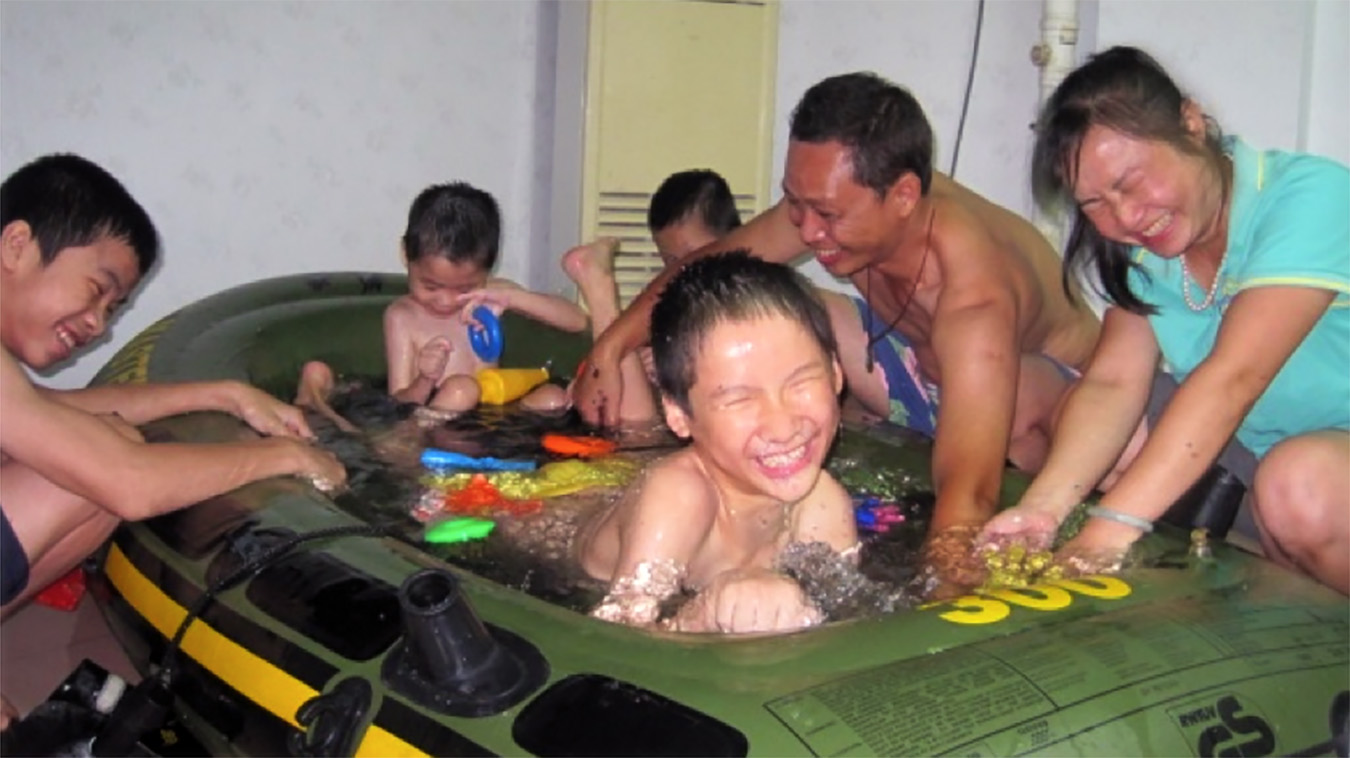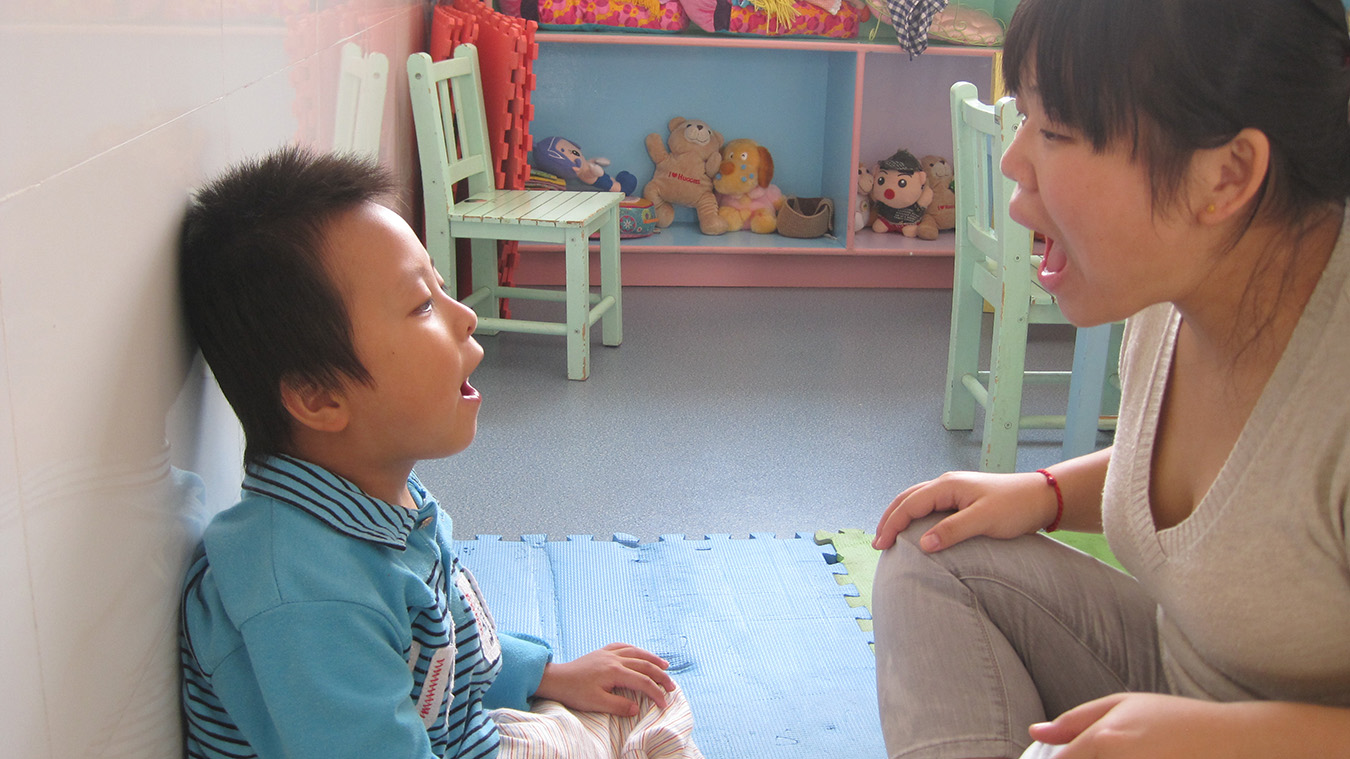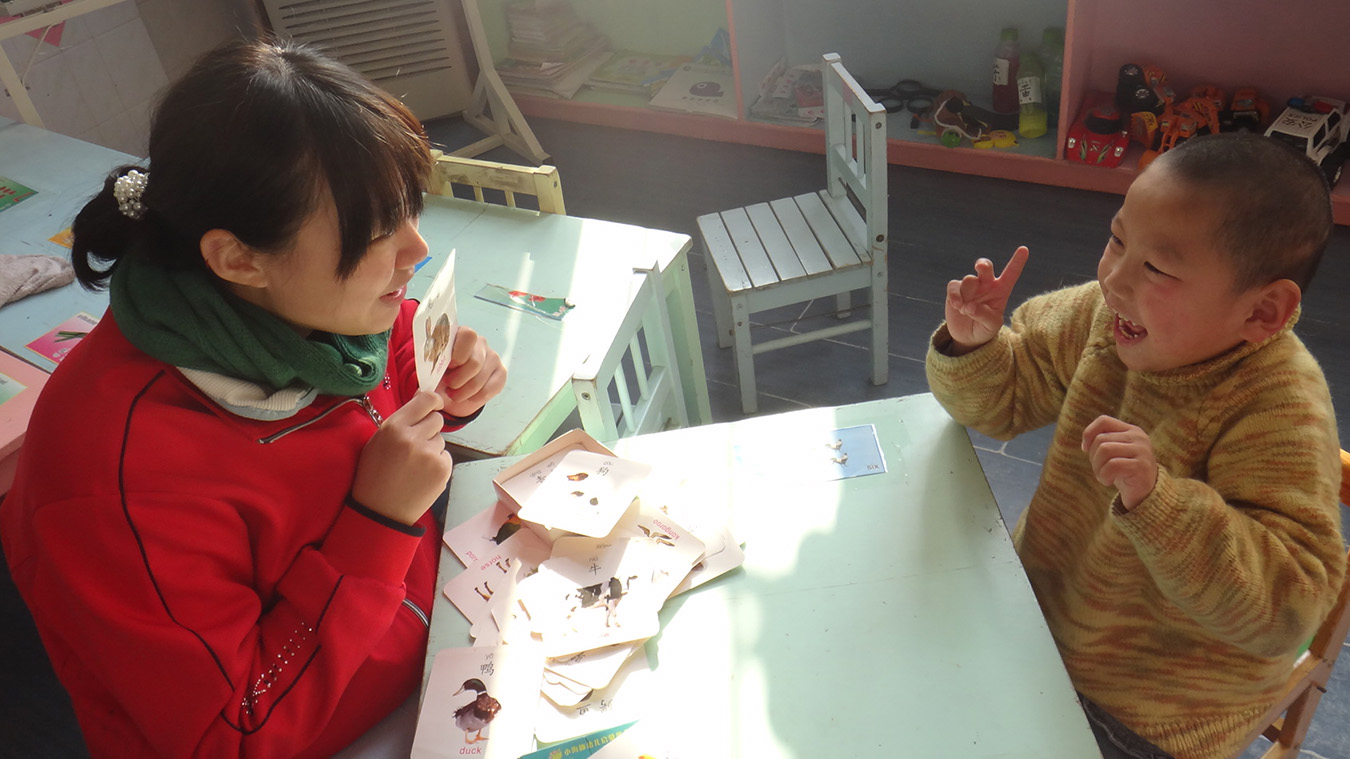Never Say ‘I Can’t’
It always makes me sad when a child in my care says: “I can’t.” It means that they have lost confidence in themselves.
Bokang, a six-year-old boy in my preschool program, recently told me: “Teacher, I can’t” when I asked him to reach for a cookie on the table. Bokang has cerebral palsy so his muscles are stiff and hard to control, but I knew he could do it, so I encouraged him. “Bokang, come on! Try to pick up the cookie. You can do it.”
I held his hand to help relax the muscles, and said: “Never say can’t, Bokang. Believe in yourself. Now go ahead, reach for the cookie.”
He frowned, but did as I said. He let go of my hand, extended his arm slowly, and managed to grab the cookie with his thumb and third and fourth fingers.
“You did it! I knew you could!” I said.
He smiled broadly. I could tell he was pleased.
This was a turning point for us. Slowly, his confidence started to build. He stopped saying “I can’t” and started to try harder.
This has allowed us to make a lot of progress. We have been working on correcting his sitting posture, on holding his head up for longer periods, and even on walking. Now, as a result, he can sit in a normal chair like the other children.
Confidence makes a world of difference!





